As the year draws to a close, it’s time to reflect on the triumphs and challenges that the European Dalmatian pelican population encountered in 2023. Being a symbol of thriving and interconnected wetlands in Europe, this keystone species remains reliant on dedicated conservation efforts.
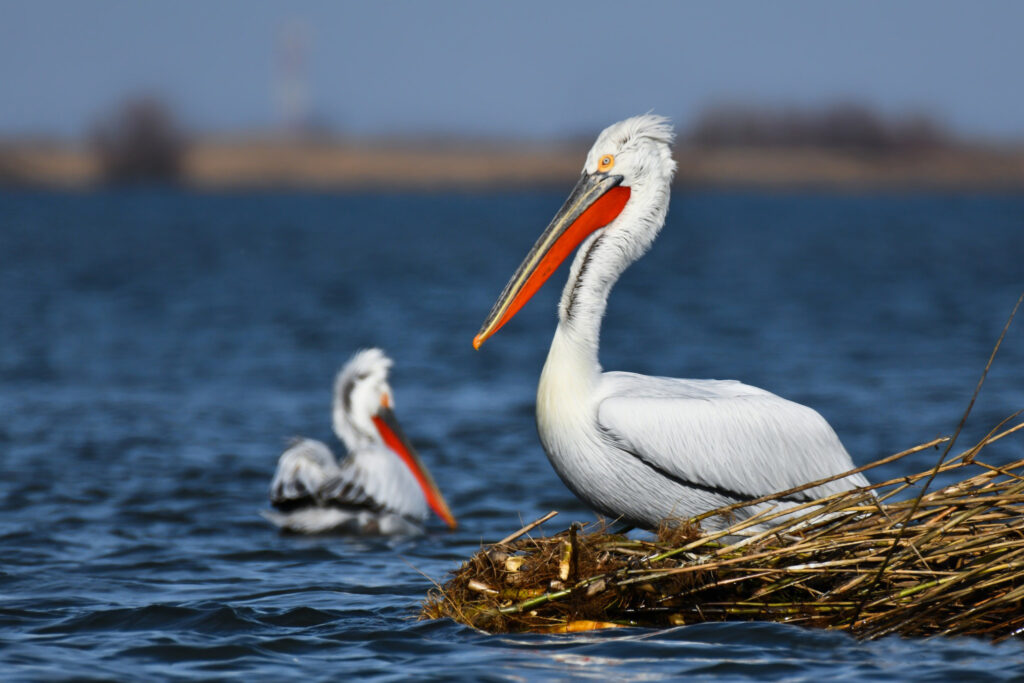
Fortunately, the pelicans experienced a more favorable year, showing signs of recovery after the avian flu outbreak that significantly impacted this vulnerable species across Europe last year. Notably, Bulgaria witnessed a successful breeding season for the Dalmatian pelicans, mirroring positive trends in other countries.
Throughout Europe, organizations participating in the Pelican Way Of LIFE initiative have diligently worked to mitigate threats to the Dalmatian pelican, striving to create optimal conditions for its population. Whether through wetlands restoration, nesting platform construction, monitoring, or educational endeavors, these collective actions contribute to the resurgence of this truly iconic bird in landscapes across the continent.
European counts of the Dalmatian pelicans
The sixth Southeastern European Pelican Census unfolded in late May 2023, marking the most expansive initiative of its kind. Simultaneous counts spanned Greece, other Balkan nations, Romania, and Bulgaria, mobilizing hundreds in a concerted effort. In Romania, aerial surveys, conducted by the Romanian Ornithological Society (SOR) via a small airplane, captured images of nesting colonies. However, Ukraine’s involvement was limited due to war-related restrictions, notably no-go areas in the delta. Hellenic Ornithological Society (HOS) led the coordination. This routine monitoring is crucial for planning targeted conservation efforts, leveraging insights into the endangered Dalmatian pelican’s population size and distribution across the region. Additionally, winter counts in all countries during December await analysis.
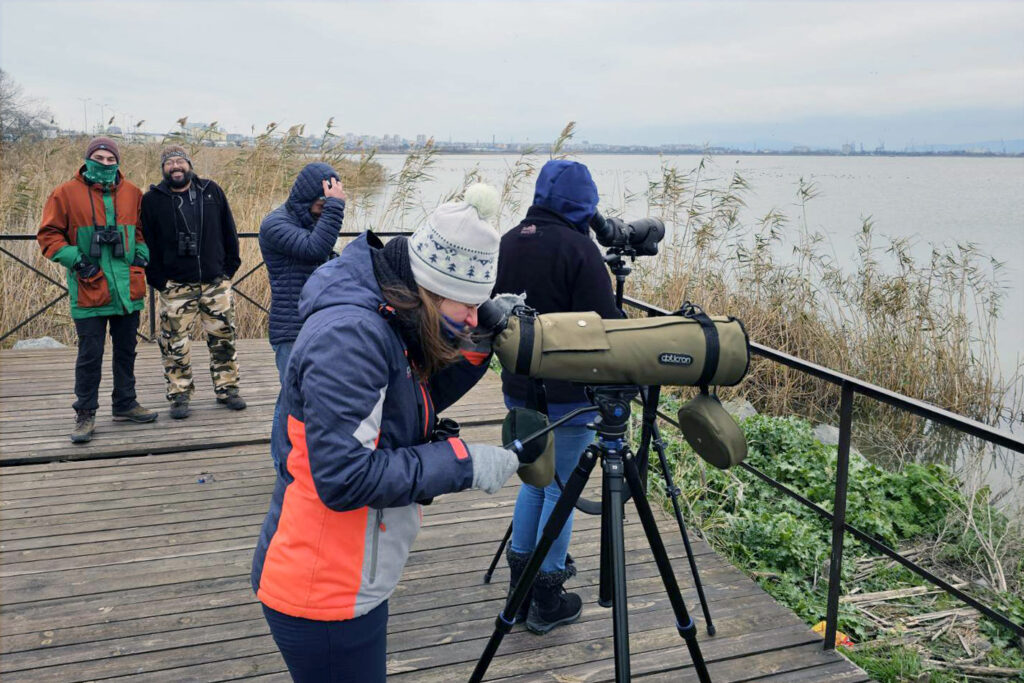
Tagging the pelicans with satellite transmitters and color rings
In a successful year for conservationists, 23 Dalmatian Pelicans were equipped with satellite transmitters. The HOS team in Greece tagged 9, the Bulgarian Society for the Protection of Birds (BSPB) tagged 7 in Bulgaria and 1 in Albania, and the SOR team tagged 6 in the Romanian part of the Danube Delta. Additionally, 1 Great White pelican was tagged in Bulgaria. An interactive map, showcasing the birds’ movements across the continent, including previously tagged pelicans, is now available for exploration on our website. Alongside tagging, the HOS team also affixed color rings to 41 young pelicans throughout Greece. Satellite telemetry, color rings, and wing tags aid in gathering vital data on bird movements, dispersal, home range, survival rates, mortality factors, and more. This data helps conservationists to make informed decisions to safeguard the population of the species.
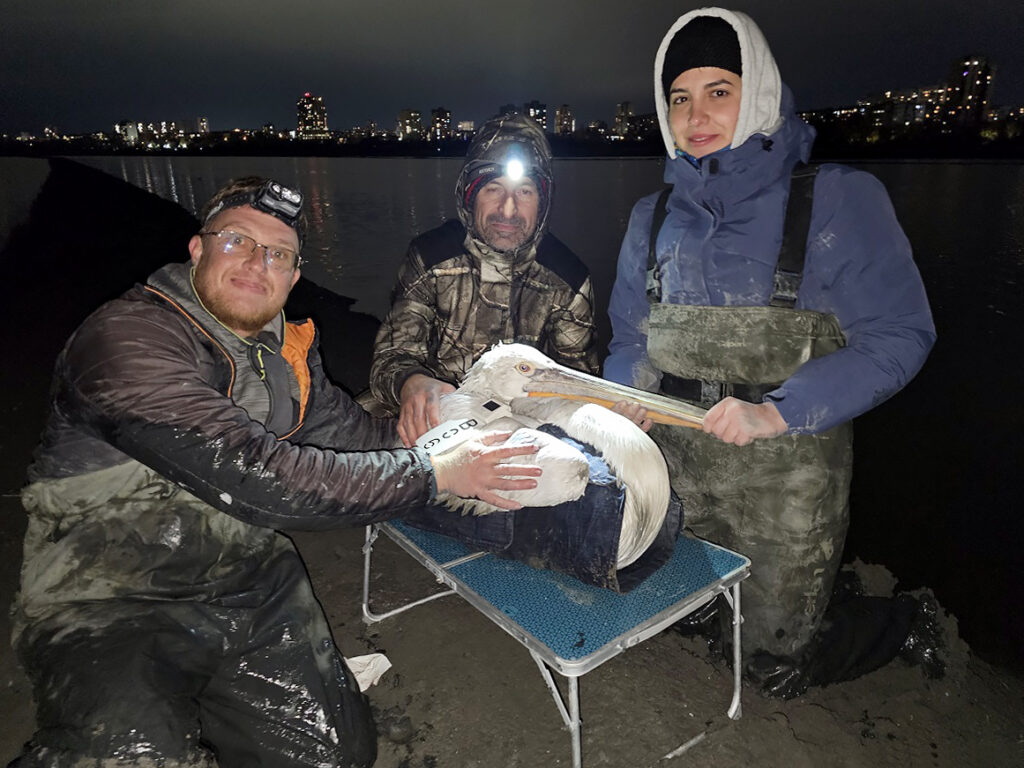
Improving nesting conditions for pelicans in Bulgaria and Ukraine
The BSPB team and volunteers successfully constructed a new floating platform for Dalmatian pelican nesting in the Kalimok-Brushlen Protected Area. Another platform was erected in the Persina Nature Park, replacing two damaged by adverse weather conditions. Earlier platforms in Bulgaria and Ukraine were refurbished and re-covered with reeds in preparation for the upcoming spring-winter 2024 breeding season. These platforms, mimicking islands with vegetation, serve as temporary nesting sites until broader wetland restoration occurs. Some platforms are enhanced with lifelike figures of Dalmatian pelicans to attract real birds to these artificial habitats. A step forward in fostering a conducive environment for the pelicans’ breeding activities.
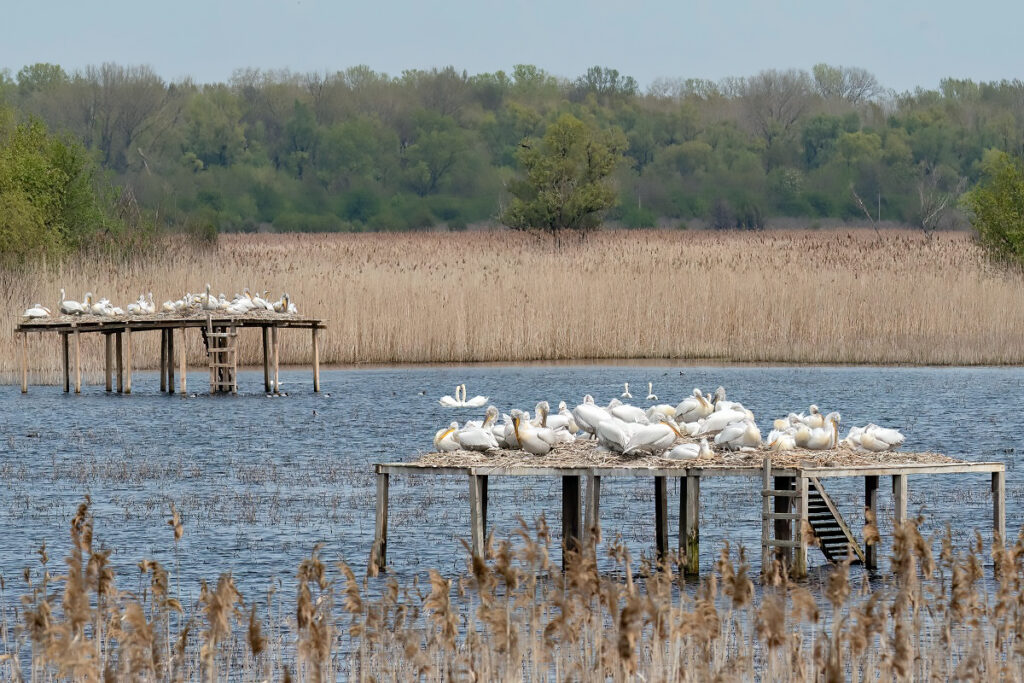
Educating Young Generation
In June, a Danube Delta-based educational camp by Rewilding Europe brought together over 50 participants from four countries to explore the world of Dalmatian pelicans and the vital role of rewilding in their comeback to European landscapes. Rewilding Ukraine‘s “Living Danube Delta” campaign engaged 16 schools in Romania, Ukraine, and Moldova, fostering a deeper connection between young people and the delta’s nature. The BSPB hosted the National Ornithology Olympiad 2023, drawing 117 pupils from various cities. The SOR team conducted educational bird activities in two Romanian schools, while BSPB and PNPD teams in Bulgaria organized Dalmatian pelican lessons and nature excursions in schools and universities. Four educational events were held in the Messolongi protected area by the HOS team, engaging over 160 primary school pupils.
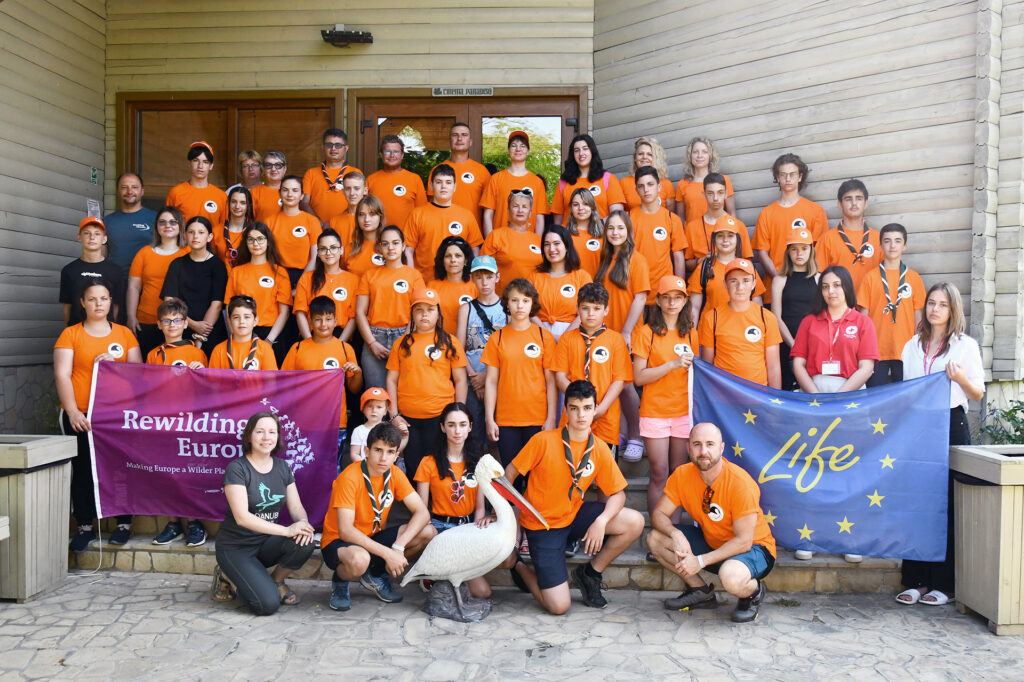
Awareness and engagement to inspire the youth and adults
In late May, Bulgaria hosted the third Festival of the Dalmatian Pelican, a significant conservation-focused event organized by PNPD and its partners. BSPB’s “Atanasovsko Lake” camp saw the collaboration of almost 100 dedicated volunteers, repairing artificial islands on Lake Atanasovsko for bird nesting and resting. Simultaneously, the second Danube volunteer conservation camp in Persina Nature Park combined practical fieldwork with enlightening lectures at the Park’s Visitor Center. In early July, BSPB heightened awareness within local communities through events at two nesting sites, Persina Nature Park and Kalimok-Brushlen Protected Area, during a boat expedition along the Danube River. Nature guide training sessions, conducted by Rewilding Europe’s training team, took place in both the Danube and Oder Deltas. The HOS team engaged visitors at the Athens Science Festival and UK Global Birdfair, providing information about Dalmatian pelicans and other birds. Additionally, various partners highlighted the Pelican Way of LIFE initiative at different events throughout the year.
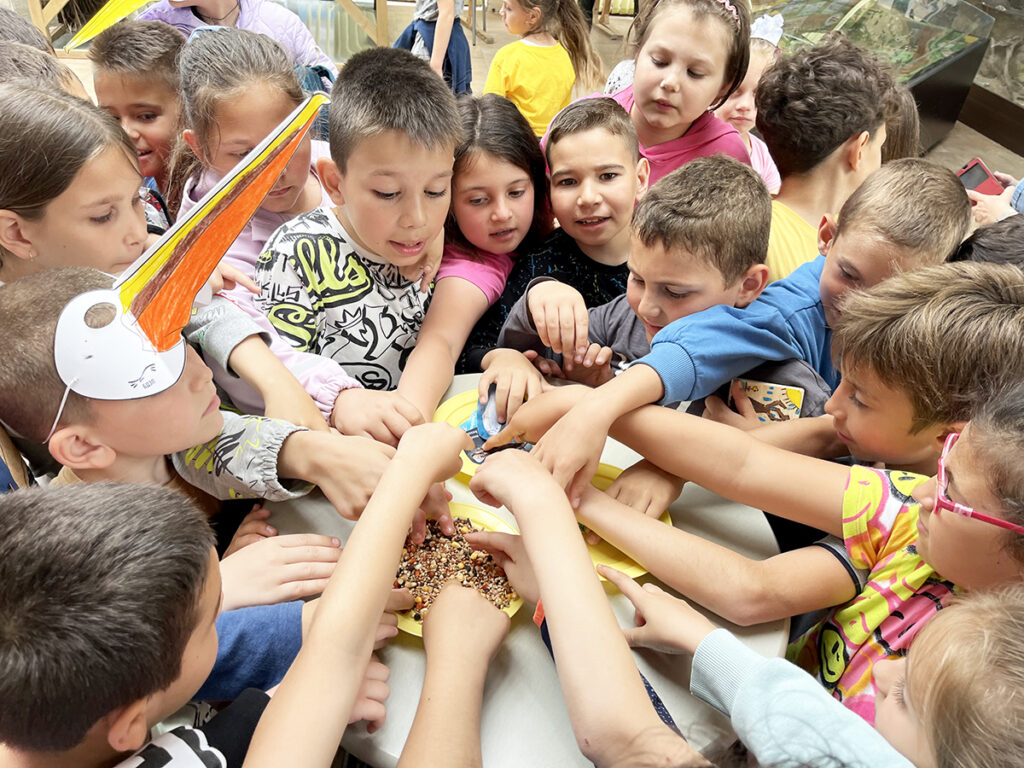
All these activities have become possible through generous funding from the LIFE Programme of the European Union, the Arcadia Foundation, and the Whitley Fund for Nature in Bulgaria. Gratitude is extended to our dedicated partners and volunteers across all countries participating in the Pelican Way of LIFE initiative. Your unwavering support is truly appreciated, and here’s to a fantastic 2024 together!